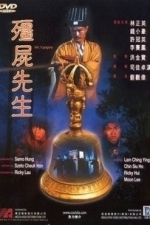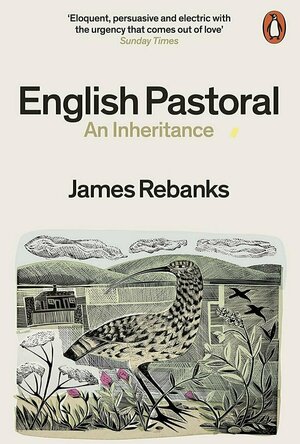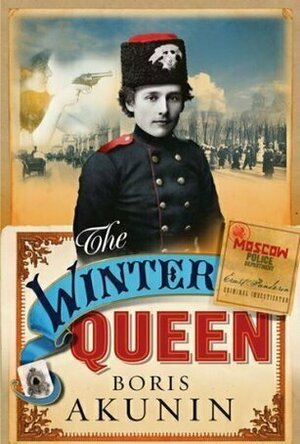Search
Search results
Dean (6927 KP) rated Jolt (2021) in Movies
Sep 4, 2021
Kate Beckinsale (1 more)
Amusing
Low voltage fun
Feeling like a low powered Crank with a female twist. Never quite sure whether to go full out violent or go for comedy value. So it ends up some where in the middle and with a weak revenge story it's not going to jolt your memory long after.
Kate Beckinsale with her sarcastic blunt quips does make it fairly enjoyable and the supporting cast is pretty decent. OK for a watch but not one to go out of your way to catch.
Why try to Americanise the location as well? European cars, English street signs and scenes shot on the Southbank and quite a few using the Tate Modern location for the villians pad. A couple of fire hydrants, yellow taxis and a school bus to make it look set in New York seem pointless.
Kate Beckinsale with her sarcastic blunt quips does make it fairly enjoyable and the supporting cast is pretty decent. OK for a watch but not one to go out of your way to catch.
Why try to Americanise the location as well? European cars, English street signs and scenes shot on the Southbank and quite a few using the Tate Modern location for the villians pad. A couple of fire hydrants, yellow taxis and a school bus to make it look set in New York seem pointless.
Blazing Minds (92 KP) rated Mr. Vampire (1985) in Movies
Nov 1, 2021 (Updated Nov 3, 2021)
Let’s start by saying that this 2K restored version of Mr Vampire comes with several audio tracks to choose from an English dub in 2.0, an America Dub in 5.1 and the Cantonese audio in mono, so I opted to watch the film in it’s 5.1 dub for the purposes of this review.
The team behind the 2K Restoration of Mr Vampire has done a good job, there is some slight grain to the film, but this really doesn’t distract from what is a fun movie with its mix of comedy, some martial arts and horror, the colours are nice and vibrant making the film look fresh and most probably how it looked when it first had its release, the dubbing is one of the better-dubbed movies I’ve seen recently and the 5.1 mix does sound good (I’ll update this review with the other language options soon).
The team behind the 2K Restoration of Mr Vampire has done a good job, there is some slight grain to the film, but this really doesn’t distract from what is a fun movie with its mix of comedy, some martial arts and horror, the colours are nice and vibrant making the film look fresh and most probably how it looked when it first had its release, the dubbing is one of the better-dubbed movies I’ve seen recently and the 5.1 mix does sound good (I’ll update this review with the other language options soon).

WordDive: Learn languages
Education
App
Learn English, Spanish, French, Italian, German, Russian, Swedish, Finnish and Estonian. WordDive...

Message Bible+
Reference and Book
App
Bible Reader featuring The Message Bible AND the King James Version Bible in fully formatted text...

NIV Bible*
Reference and Book
App
Bible Reader featuring the NIV and dozens of other versions free online. Navigate by book, topic,...
Janeeny (200 KP) rated English Pastoral in Books
Sep 7, 2021
A love letter to Old English farming
English Pastoral is a beautiful love letter to traditional English farming.
Rebanks takes us through the journey of three generations on the farm in three parts. The first part talks about his childhood on the farm and his grandfather teaching him the ways of the land. The second part is Rebanks in his twenties, he’s experienced modern farming overseas and has ideas on how to move the farm forward, this includes using chemicals to protect the crops and enhance the livestock. Part three is Rebank’s time on the farm and their realisation that all they’ve been doing to keep up with modern farming has actually been having a counterproductive event.
It is a story of hope, a farming family brought to the brink of collapse that realise, in time, the real way forward can sometimes be backwards.
There is just too much goodness in this book to cover it all here. It’s beautifully written, it’s heartfelt and evocative. It pulls you into the pages, and I could have quite happily stayed living on that hardworking little farm on the fells.
There are some charming little anecdotes in this book, and the reverence with which Rebanks tells them is palpable. Rebanks is acutely aware of the contrast in farming techniques and frequently draws comparisons. From his grandfather gently moving a nest from one part of a field he’s cutting back (then moving in back again), to modern-day combines just hacking their way through a field regardless of the wildlife within.
This also re-affirms his grandfathers earlier statement that modern-day farmers sitting up in the cabs of their tractors have lost touch with the land.
This modern-way of farming doesn’t quite sit right with Rebanks and his father, they know that something is not quite right with the way they do things, but what else can they do to keep up with modern demands. The pivotal moment comes when Harry passes away. Harry is a local farmer of the same generation as Redbank’s grandfather, he’s stayed connected to the land and hasn’t gone in for all these modern ways. Another farmer who plans to buy the land gets the soil tested (in anticipation of what nutrients he may have to put into it) the soil inspector explains that the soil is healthy. In fact, it’s some of the best soil he’s ever seen.
This is when Rebanks begins to realise that the farmers themselves are the problem with the land. The ultimate irony that the very people who are supposed to be caring for the land are also the ones slowly destroying it.
Not only is this an exquisite little memoir, it is also a lesson on looking after the land. Rebanks lays it out as it is; in cold hard detail, this is what happened this is what he did about it. There is no preaching, but if we’re lucky we’ll learn something from it
Rebanks takes us through the journey of three generations on the farm in three parts. The first part talks about his childhood on the farm and his grandfather teaching him the ways of the land. The second part is Rebanks in his twenties, he’s experienced modern farming overseas and has ideas on how to move the farm forward, this includes using chemicals to protect the crops and enhance the livestock. Part three is Rebank’s time on the farm and their realisation that all they’ve been doing to keep up with modern farming has actually been having a counterproductive event.
It is a story of hope, a farming family brought to the brink of collapse that realise, in time, the real way forward can sometimes be backwards.
There is just too much goodness in this book to cover it all here. It’s beautifully written, it’s heartfelt and evocative. It pulls you into the pages, and I could have quite happily stayed living on that hardworking little farm on the fells.
There are some charming little anecdotes in this book, and the reverence with which Rebanks tells them is palpable. Rebanks is acutely aware of the contrast in farming techniques and frequently draws comparisons. From his grandfather gently moving a nest from one part of a field he’s cutting back (then moving in back again), to modern-day combines just hacking their way through a field regardless of the wildlife within.
This also re-affirms his grandfathers earlier statement that modern-day farmers sitting up in the cabs of their tractors have lost touch with the land.
This modern-way of farming doesn’t quite sit right with Rebanks and his father, they know that something is not quite right with the way they do things, but what else can they do to keep up with modern demands. The pivotal moment comes when Harry passes away. Harry is a local farmer of the same generation as Redbank’s grandfather, he’s stayed connected to the land and hasn’t gone in for all these modern ways. Another farmer who plans to buy the land gets the soil tested (in anticipation of what nutrients he may have to put into it) the soil inspector explains that the soil is healthy. In fact, it’s some of the best soil he’s ever seen.
This is when Rebanks begins to realise that the farmers themselves are the problem with the land. The ultimate irony that the very people who are supposed to be caring for the land are also the ones slowly destroying it.
Not only is this an exquisite little memoir, it is also a lesson on looking after the land. Rebanks lays it out as it is; in cold hard detail, this is what happened this is what he did about it. There is no preaching, but if we’re lucky we’ll learn something from it
Deborah (162 KP) rated The Madwoman Upstairs in Books
Dec 21, 2018
I thought this sounded a really interesting idea, modern day woman, descended from the Bronte family uncovers secrets from the history of her family. While I didn't dislike it, I didn't really love it either. For about the first half of the book I found it a bit of a struggle as I found the protagonist, Samantha Whipple, rather hard to like. I'm not even sure I liked her that much by the end of the book to be honest.
Samantha has had rather an odd upbringing, which would account for some of her strangeness. We see her early on arriving at a fictional Oxford college to study English Literature although she seems to hate practically all writers and seems incapable of constructing a reasonable critical argument! She is rather like a spoilt child, and as such I found her hard to like. I'm also pretty good at suspending my disbelief but it takes some stretch of the imagination to accept that someone like Samantha would have been able to gain a place on an English Literature course at an Oxford college! Or that she would be housed on the fifth floor of a tower with no windows in her room and apparently there is only a bathroom on the ground floor. Must have been a bit of an issue when she sprained her ankle, but this is glossed over.
Samantha's tutor is a young, handsome (naturally!) Englishman with the unlikely name of Dr James Timothy Orville III. For most of the book he is referred to simply as 'Orville'. If you are of my generation you might understand why this seemed a bit off-putting and why I've had 'I Wish I Could Fly....' in my head for the past few days!
In conclusion, it wasn't a bad book, the writing was OK (a few Americanisms slipping into the mouths of supposedly British characters....) but it just didn't work for me - there were too many things that were rather improbable and the protagonist was, at times, idiotic.
Samantha has had rather an odd upbringing, which would account for some of her strangeness. We see her early on arriving at a fictional Oxford college to study English Literature although she seems to hate practically all writers and seems incapable of constructing a reasonable critical argument! She is rather like a spoilt child, and as such I found her hard to like. I'm also pretty good at suspending my disbelief but it takes some stretch of the imagination to accept that someone like Samantha would have been able to gain a place on an English Literature course at an Oxford college! Or that she would be housed on the fifth floor of a tower with no windows in her room and apparently there is only a bathroom on the ground floor. Must have been a bit of an issue when she sprained her ankle, but this is glossed over.
Samantha's tutor is a young, handsome (naturally!) Englishman with the unlikely name of Dr James Timothy Orville III. For most of the book he is referred to simply as 'Orville'. If you are of my generation you might understand why this seemed a bit off-putting and why I've had 'I Wish I Could Fly....' in my head for the past few days!
In conclusion, it wasn't a bad book, the writing was OK (a few Americanisms slipping into the mouths of supposedly British characters....) but it just didn't work for me - there were too many things that were rather improbable and the protagonist was, at times, idiotic.
Phil Leader (619 KP) rated The Winter Queen (Erast Fandorin #1) in Books
Nov 28, 2019
Erast Fandorin is a low level civil servant in nineteenth century Russia. An orphan with no real friends or prospects he has been assigned to the police department as a clerk simply because he has to be somewhere. But following a bizarre suicide Fandorin reveals that under his unassuming exterior is a keen mind and he soon uncovers sinister goings on both at home in Russia and abroad in London.
This is the first appearance of Akunin's master detective. Lacking the arrogance of either Holmes or Poirot but easily their equal in terms of deduction and intelligence he makes a good hero. Each of Akunin's novels is designed to represent a different type of novel and this is closest to spy novels with Fandorin spending much of his time going undercover to infiltrate a secret society or staking out and sneaking into houses. There are also plenty of physical scenes for the young hero to endure.
The plot is suitably obscure and opaque with each clue removing another layer and moving both the reader and Fandorin closer to finding out what is going on.
There is also fascinating detail of life in Tsarist Russia although as with any novel set during that time the seemingly endless Russian names - so hard to pronounce for my Anglophone brain - are sometimes a little overwhelming.
Special mention to the translator who does a fantastic job. Some Russion idioms are left intact for authenticity but others are rendered into English. This may have been originally written in Russian but it reads as if Akunin is a native English speaker.
This wasn't my first Fandorin novel and to be honest I'm not sure it's the best one to start with, despite it being the genesis of the character. To me the complexities of having to understand the Tsarist Russia (and the names) and the plot would be frustrating. But nevertheless a good and interesting read.
This is the first appearance of Akunin's master detective. Lacking the arrogance of either Holmes or Poirot but easily their equal in terms of deduction and intelligence he makes a good hero. Each of Akunin's novels is designed to represent a different type of novel and this is closest to spy novels with Fandorin spending much of his time going undercover to infiltrate a secret society or staking out and sneaking into houses. There are also plenty of physical scenes for the young hero to endure.
The plot is suitably obscure and opaque with each clue removing another layer and moving both the reader and Fandorin closer to finding out what is going on.
There is also fascinating detail of life in Tsarist Russia although as with any novel set during that time the seemingly endless Russian names - so hard to pronounce for my Anglophone brain - are sometimes a little overwhelming.
Special mention to the translator who does a fantastic job. Some Russion idioms are left intact for authenticity but others are rendered into English. This may have been originally written in Russian but it reads as if Akunin is a native English speaker.
This wasn't my first Fandorin novel and to be honest I'm not sure it's the best one to start with, despite it being the genesis of the character. To me the complexities of having to understand the Tsarist Russia (and the names) and the plot would be frustrating. But nevertheless a good and interesting read.






